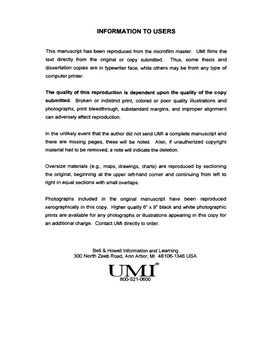| dc.contributor.advisor | Davis, Robert Con, | en_US |
| dc.contributor.author | Payne, Margaret Marie. | en_US |
| dc.date.accessioned | 2013-08-16T12:30:45Z | |
| dc.date.available | 2013-08-16T12:30:45Z | |
| dc.date.issued | 1999 | en_US |
| dc.identifier.uri | https://hdl.handle.net/11244/5879 | |
| dc.description.abstract | Some turn-of-the-century American women writers such as Jane Addams and Willa Cather use various ideas of memory and domesticity around which to build a "conservative" feminist theory through which to draw women's traditions for agency. Charlotte Perkins Gilman, a "radical" feminist of the early twentieth century, discredits women's access to a female collective memory and tradition. In works such "The Yellow Wallpaper, " Women and Economics, and The Home, she asserts that women had some power and agency in a primordial human past, but that years of oppression kept women from realizing their true potential. Addams, through her work at Hull House and her book The Long Road of Woman's Memory , ascribes to women an innate, biological, and genetic memory of womanhood that has been shaped by experiences as mothers and as homemakers. Because of the skills women have developed through their shared evolution, they are equipped to work in public making the world more homelike through "municipal housekeeping." Willa Cather also ascribes women the ability to draw from a common memory to strength and agency, but her sense of collective memory is less gendered than the feminist ideas of Addams and Gilman. For Cather, memory is a term to describe the artistic abilities that often lie latent in some women because they are not allowed to develop them. These three feminist theories cause all three women to develop plans for changes in the "domestic" or "woman's" sphere. Gilman, disavowing any accessible female tradition, calls for a complete reordering of homes in which the private, domestic sphere would be reduced through the elimination of kitchens and private meeting rooms. Cather calls for a wider sense of "spaces" available to women. She explores these roles by allowing her female characters to move about freely in the ungendered spaces of the land outside of the frontier. Addams calls for an expansion of the domestic sphere by moving its boundaries out of the home and into what had been thought of as the public sphere. In so doing, Addams presents a radical agenda through a "conservative" rhetoric of woman's memory and domesticity. | en_US |
| dc.format.extent | iv, 238 leaves ; | en_US |
| dc.subject | Addams, Jane, 1860-1935. | en_US |
| dc.subject | Women's Studies. | en_US |
| dc.subject | Literature, American. | en_US |
| dc.subject | Cather, Willa, 1873-1947. | en_US |
| dc.subject | Gilman, Charlotte Perkins, 1860-1935. | en_US |
| dc.title | "Our obligation to memory": Home environment, public service and feminism in the works of Jane Addams, Charlotte Perkins Gilman, and Willa Cather. | en_US |
| dc.type | Thesis | en_US |
| dc.thesis.degree | Ph.D. | en_US |
| dc.thesis.degreeDiscipline | Department of English | en_US |
| dc.note | Director: Robert Con Davis. | en_US |
| dc.note | Source: Dissertation Abstracts International, Volume: 60-11, Section: A, page: 4014. | en_US |
| ou.identifier | (UMI)AAI9949705 | en_US |
| ou.group | College of Arts and Sciences::Department of English | |
